Membres
Membres du groupe de coordination :
Emeline Bolmont est professeure au département d'astronomie situé à l'observatoire de Sauverny. Ses recherches se focalisent sur les exoplanètes : leur évolution orbitale et rotationnelle ainsi que sur leur habitabilité. En particulier, elle étudie l'influence de cette évolution sur l'habitabilité des exoplanètes orbitant des petites étoiles en faisant des simulations. En particulier, son équipe travaille avec un code climatique 3D permettant de simuler le climat d'exoplanètes pour en déterminer l'habitabilité.
Emeline Bolmont is professor at the department of Astronomy located at the observatory of Sauverny. Her research focuses on exoplanets: their orbital and rotational evolution as well as their habitability. In particular, she studies the influence of that evolution on the habitability of planets orbiting small stars by performing simulations. In particular, her team work with a 3D climate model, which allows to simulate the climate of exoplanets in order to assess their habitability.
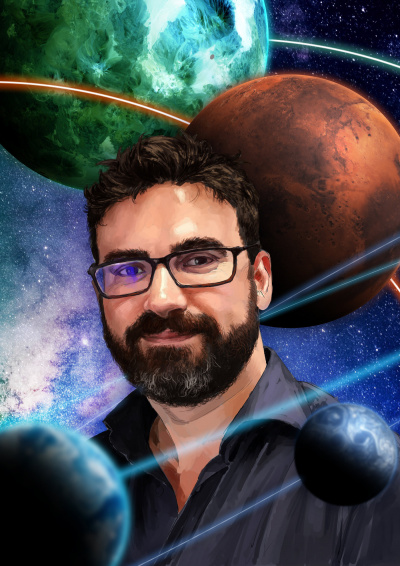
Prof. David Ehrenreich
Membre
Observatoire de Sauverny (OBS)
(022.37) 92390
Courriel
Crédit portrait: Amin Ladhani
David Ehrenreich est professeur d’astrophysique au Département d’astronomie. Ses recherches portent sur la caractérisation des atmosphères d’exoplanètes. Il étudie la composition et la structure des atmosphères qui entourent des planètes pouvant se trouver dans des conditions très différentes des planètes de notre Système solaire. Il étudie par exemple le climat de planètes très proches de leur étoile et recevant un ensoleillement des milliers de fois supérieur à celui de la Terre, ou au contraire des planètes plus tempérées, dans l’atmosphère desquelles il serait possible de détecter des traces de vie.
David Ehrenreich is Professor of Astrophysics in the Department of Astronomy. His research focuses on the characterisation of exoplanet atmospheres. He studies the composition and structure of the atmospheres surrounding planets that may be in very different conditions from the planets in our Solar System. For example, he studies the climate of planets that are very close to their star and receive thousands of times more sunlight than the Earth, or, on the contrary, more temperate planets, in whose atmosphere it would be possible to detect traces of life.
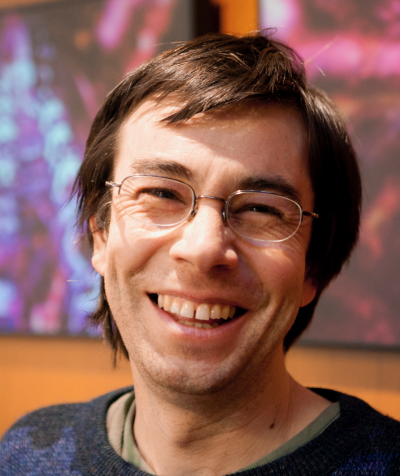
Prof. Jérome Kasparian
Membre
Uni Carl-Vogt (CV1)
(022.37) 90512
Courriel
Jérôme Kasparian est professeur au Groupe de physique appliquée et à l'Institut des sciences de l'environnement. Les recherches de son groupe se focalisent sur les systèmes dynamiques nonlinéaires et leurs analogies. En particulier, elles incluent la multistabilité du climat et les points de bascule qui y sont associés, avec des implications potentielles dans la gamme de conditions qui permettent l'habitabilité et son maintien à long-terme.
Jérôme Kasparian is professor at the Group of Applied Physics and at the Institute of Environmental sciences. The research of his group focuses on nonlinear dynamical systems and their analogies. In particular, they include climate multistability and tipping points, with potential implications on both the range of conditions allowing habitability and its long-term preservation.
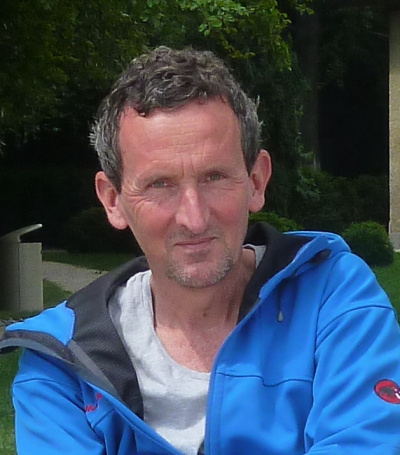
Prof. Bastiaan Ibelings
Membre
Uni Carl-Vogt (CV1)
(022.37) 90313
Courriel
Bastiaan Ibelings est professeur en écologie microbienne au département F.-A. Forel des Sciences de l'Environnement et de l'Eau. Ses principaux intérêts de recherche sont la compréhension de la dynamique des communautés planctoniques dans les lacs périalpins sous l'impact des changements environnementaux. Les sujets d'intérêt spécifique sont les efflorescences de cyanobactéries toxiques et les champignons parasites chytrides qui infectent le phytoplancton des lacs. Il s'efforce d'intégrer la base évolutive des phénomènes écologiques qu'il étudie et aime le pouvoir de l'évolution expérimentale dans l'élucidation des processus éco-évolutifs.
Bastiaan Ibelings is Professor in Microbial Ecology in Depatment F.-A. Forel for Environmental and Aquatic Sciences. His main research interest is in understanding the dynamics of plankton communities in peri-alpine lakes under impact of environmental change. Topics of specific interest are blooms of toxic cyanobacteria and chytrid parasitic fungi that infect lake phytoplankton. He strives to integrate the evolutionary basis of the ecological phenomena he studies and loves the power of experimental evolution in unraveling eco-evolutionary processes.

Prof. Orsolya Barabas
Membre
Sciences 3 (SC3)
(022.37) 96183
Courriel
Orsolya Barabas est professeure au département de biologie moléculaire et cellulaire. Ses intérêts de recherche se situent à l’interface de la biochimie et de la biologie moléculaire. Son équipe étudie la manière dont l’information génétique est transmise entre les organismes vivants, dans le contexte de l’évolution et de l’adaptation à l’environnement. En particulier, ils analysent la structure et les mécanismes des machines moléculaires qui agissent sur les acides nucléiques pour réaliser des réarrangements du génome et le transfert de gènes entre cellules et organismes.
Orsolya Barabas is Professor in the Department of Molecular and Cellular Biology. Her research interests lie on the interface of biochemistry and molecular biology. Her team studies how genetic information is transmitted across living organisms, in the context of evolution and environmental adaptation. In particular, they study the structure and mechanisms of molecular machines that act on nucleic acids to execute genome rearrangements and gene transfer between cells and organisms.
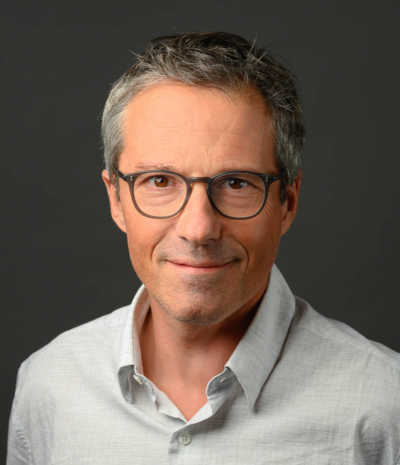
Prof. Nicolas Winssinger
Membre
Sciences 2 (SC2)
(022.37) 96105
Courriel
Nicolas Winssinger est professeur au département de chimie organique. Ses intérêts de recherche se situent au carrefour de la synthèse organique et des sciences de la vie. Un thème important de ses recherches est l'utilisation des oligonucléotides pour programmer l'organisation spatiale et la réactivité. Un objectif à long terme est d'étendre ces principes à des systèmes complexes capables d'émuler certaines des caractéristiques fondamentales des systèmes vivants. Un sujet d'intérêt particulier est d'utiliser l'évolution darwinienne dans les systèmes chimiques.
Nicolas Winssinger is Professor in the Organic Chemistry department. His research interests are at the crossroad of organic synthesis and life sciences. An important theme through his research is the use of oligonucleotides to program spatial organization and reactivity. A long-term objective is to extend these principles towards complex systems which can emulate some of the fundamental features of living systems. A topic of special interest is to use Darwinian evolution in chemical systems.
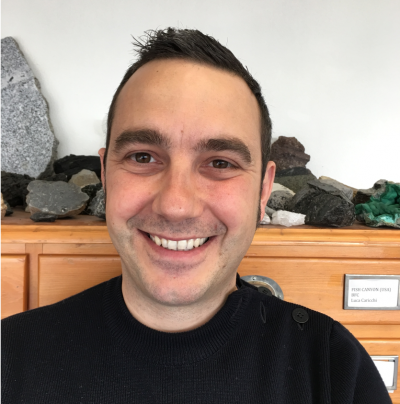
Prof. Luca Caricchi
Membre
Maraichers A (MARA)
(022.37) 96630
Courriel
Luca Caricchi est professeur de volcanologie et de pétrologie au Département des sciences de la Terre. Ses recherches portent sur la compréhension des processus physiques responsables de l'ascension, du stockage, de l'évolution chimique et de l'éruption du magma. Il utilise le travail de terrain, la géochimie, les statistiques et le machine learning pour récupérer des informations à partir des archives géologiques des roches et quantifier les processus magmatiques se produisant à des profondeurs inaccessibles. Récemment, les groupes de recherche qu'il dirige ont publié une série d'articles qui permettent de quantifier les flux de magma à travers la lithosphère, une étape essentielle pour estimer l'ampleur des futures éruptions volcaniques. De plus, il a récemment travaillé sur l'impact des processus tectoniques précoces sur la formation de minéraux qui pourraient catalyser la production de molécules prébiotiques.
Luca Caricchi is a professor of Volcanology and Petrology at the Department of Earth Sciences. His research focuses on the understanding of the physical processes responsible for the ascent, storage, chemical evolution and eruption of magma. He uses fieldwork, geochemistry, statistics and machine learning to retrieve information from the geological rock record and quantify magmatic processes occurring at inaccessible depths. Recently, the research groups he leads have been publishing a series of paper that allow the quantification of magma fluxes through the lithosphere, an essential step to estimate the magnitude of future volcanic eruptions. Additionally, he has recently worked on the impact of Early tectonic processes on the formation of minerals that could catalyse the production of pre-biotic molecules.
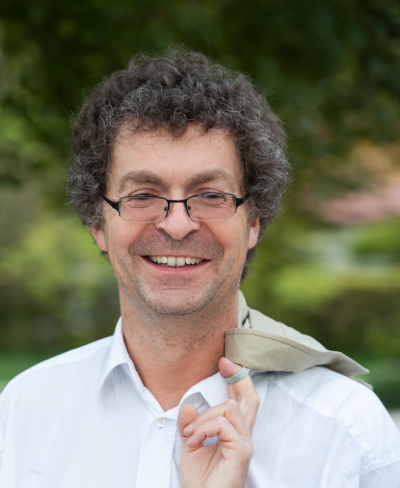
Prof. Andreas Mueller
Membre
Institut Universitaire de Formation des Enseignants (IUFE)
(022.37) 90713
Courriel
Andreas Müller est professeur de didactique des sciences à la section de physique et à l'institut de formation des enseignants. Ses principaux travaux portent sur la recherche empirique et le développement en didactique des sciences (en particulier de la physique et de l'astronomie) et de la formation des enseignant-es, entre autre sur: le rôle des tâches et des expériences dans l'apprentissage des sciences, l'utilisation des smartphones pour l'enseignement de la physique, et les effets des offres d'apprentissage extrascolaires.
Andreas Müller is professor of science education at the section of physics and the institute of teacher education. His main work is about empirical research and research-based development in science (especially: physics and astronomy) education and science teacher education, e.g. about: role of tasks and experiments in science learning; use of mobile devices for physics education; effects of out-of-school learning offers.

Dr. Kostas Kampourakis
Membre
Institut Universitaire de Formation des Enseignants (IUFE)
(022.37) 90722
Courriel
Kostas Kampourakis est MER (Maître d’enseignement et de recherche) à l’Université de Genève, où il enseigne à des étudiants en biologie au niveau bachelor, à des doctorants ainsi qu’à des enseignants en sciences. Il est l’auteur et l’éditeur de plusieurs ouvrages sur la science, avec un intérêt particulier pour la compréhension publique de l’évolution et de la génétique, ainsi que pour la nature de la science. Il est également directeur de la collection Understanding Life, publiée par Cambridge University Press. Par le passé, il a été rédacteur en chef de la revue Science & Education, ainsi que fondateur et directeur de deux collections d’ouvrages consacrées à l’éducation scientifique.
Kostas Kampourakis is an MER (Maître d’enseignement et de recherche) at the University of Geneva, where he teaches courses to undergraduate biology students, PhD students, and science teachers. He is the author and editor of several books about science, with a particular interest in the public understanding of evolution and genetics, as well as the nature of science. He is also the Editor of the book series Understanding Life, published by Cambridge University Press. In the past, he was the editor-in-chief of the journal Science & Education, as well as the founding editor of two book series focusing on science education.
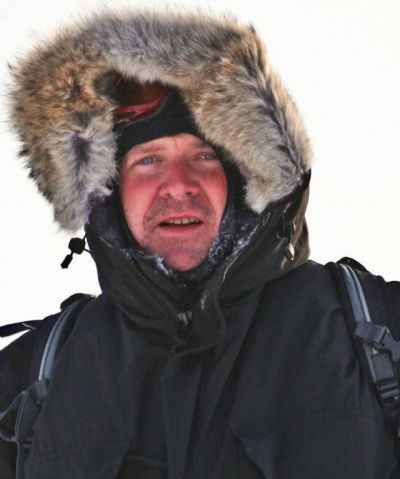
Prof. Daniel McGinnis
Membre
Uni Carl-Vogt (CV1)
(022.37) 90792
Courriel
Daniel McGinnis est professeur en physique aquatique au Département F.-A. Forel des Sciences de l'Environnement et de l'Eau. Son principal objectif de recherche est de comprendre les impacts du changement climatique sur les lacs et les océans côtiers. Son groupe de recherche se concentre fortement sur les gaz à effet de serre des eaux naturelles et effectue des mesures de gaz traces et des isotopes stables pour mieux comprendre ces phénomènes. Ses sites de terrain actuels se concentrent sur les lacs préalpins et l'océan Arctique.
Daniel McGinnis is a professor in Aquatic Physics in the Department F.-A. Forel for Environmental and Aquatic Sciences. His main research focus is understanding climate change impacts on lakes and coastal oceans. His research group focuses heavily on greenhouse gases from natural waters, and performs trace gas and stable isotope measurements to better understand these phenomena. His current field sites focus on pre-alpine lakes and the Arctic Ocean.
Chercheurs associés/Associated researchers
- Adrien Deline, Department of Astronomy
- Alexandre Revol, Department of Astronomy
- Anders Meibom, EPFL
- Anna Sfyrla, Department of Nuclear and Corpuscular physics
- Asena Kuzucan, Department of Astronomy & Forel Institute
- Bhagyashree Mishra, Department of Earth Sciences
- Cesar Ordonez, Forel Institute
- Chiara Boschi, Pisa University
- Christian Verard, Department of Earth Sciences
- Christophe Lovis, Department of Astronomy
- Clémentine Antoine, Department of Earth Sciences
- Gregory Guiliani, Institute for Environnemental Sciences
- Guillaume Chaverot, University of Grenoble
- Jaqueline Quirino Ferreira, Forel Institute
- Johanna Marin Carbonne, Uni Lausanne
- Kostas Kampourakis, IUFE
- Laure Moinat, Institute for Environnemental Sciences
- Leon Kwok, Department of Astronomy
- Lili Loth, Department of Earth Sciences
- Luca Lombriser, Department of Theoretical Physics
- Marc Audard, Department of Astronomy
- Maria Ovtcharova, Department of Earth Sciences
- Mariana Sastre, University of Gröningen
- Marine Leyvraz, University of Bern
- Mathilde Houelle, Department of Astronomy
- Mathilde Kervazo, University of Nantes
- Maura Brunetti, Institute for Environnemental Sciences
- Mridul Thomas, Forel Institute
- Muskan Shinde, Department of Astronomy
- Nicolas Greber, Natural History Museum
- Nina Zeyen, Department of Earth Sciences
- Rossana Martini, Department of Earth Sciences
- Siddharth Bhatnagar, Department of Astronomy & Institute for Environnemental Sciences
- Stéphane Goyette, Institute for Environnemental Sciences
- Takuji Adachi, Department of Physical Chemistry
- Tim Kallioinen, Department of Astronomy
- Urs Schaltegger, Department of Earth Sciences
- Valentina Vaulato, Department of Astronomy
Administration et communication / Administration and outreach
- Asena Kuzucan, Department of Astronomy
- Marion Cointepas, Department of Astronomy

